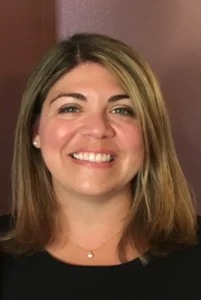When Governor Cuomo steps down from his role as governor, Lt. Governor Kathy Hochul…
How We Can Ensure the Election of Local and State Women Political Leaders

We must ensure that local and state women political leaders are a robust part of the pipeline to Washington, DC, because the first woman President will likely be one of them.
The 2023 elections were almost entirely about local and state leadership–municipal, mayoral and county offices and ballot issues. To understand why this is important, take a look at “Membership of the 118th Congress: A Profile” by the Congressional Research Service; approximately 80% of Members today were in public service or elective office at the local, state or federal level before entering Congress.
Further, the percentage of women in local and state office often equals or exceeds the percentage of women in Congress, according to the Center for American Women and Politics. Only 25% of the U.S. Senate and 28.7% of the U.S. House are women. In contrast:
- 32% of Municipal office holders are women and 33% of Mayors in the 100 most populous cities are women.
- 32.6% of state legislators are women and 25% of Governors.
In short, to elect a woman President, we would do well to expand representation at all levels to exceed critical mass, achieve parity, and to leverage the pool of candidates at every point in the pipeline to reach the Oval Office.
It is especially important to eliminate disparities in representation among underrepresented groups based on race, class, LGBTQ+ and other identities. Let’s meet a few of the organizations and officeholders that are changing the political landscape for women in 2023 and beyond:

Women’s Policy Leadership Network (WPLN):A recent entry into the field is the WPLN, a non-profit initially founded in 2017 and expanded in 2019 to build a pipeline of women entering public service and running for office. Focusing on center-right women, the WPLN provides training, grants and access to mentorship and networks. Co-founder and President Larissa Martinez is a self-described political entrepreneur with a long history of public service. She observes that there is not enough lived experience in politics. “Non-partisan doesn’t mean neutral,” says Martinez, and the obstacles for center-right women in fundraising, policy, and politics are different than for women on the left.

Matriots Ohio: All eyes were on Ohio in 2023, as the only state with a statewide ballot issue on abortion. The political landscape is much deeper and wider, however. Matriots Ohio, also was founded in 2017. Their tagline is “We share values, not labels,” and their goal is to have at least 50% of elected offices in Ohio held by women. CEO Emily Quick Schriver, a lawyer and leader in higher education policy in Ohio and Washington, DC, leads the statewide organization that invests locally. “Women are driven by impact, and serving their communities is the first step to making the greatest impact,” says Schriver, “In Ohio, we are seeing women candidates driving change locally and elevating the conversation on a national level.”
The Matriots endorsed and supported a record number of women running for office in 2023, and 75% won their races, including the office holder profiled below: Columbus School Board Member Dr. Tina Pierce.

Columbus School Board Member Dr. Tina Pierce was re-elected for a second term on the Columbus Board of Education (Columbus City Schools) in November, and education is a hallmark of her approach to political and social change. On a macro level, Dr. Pierce creates and holds space for underrepresented groups in public policy spaces to achieve multi-generational impact, including K-12 education, higher education, and allied organizations. She wrote the equity policy for the Columbus City School district and serves as the Central Region President for the Ohio School Boards Association. On an individual level, Pierce encourages students to tailor an academic program that gives them the skills needed to achieve, including interpersonal and emotional intelligence skills, intentionality, finding common ground and understanding how the background of policy and the long strings of history continue to resonate today. “Our intentional work to identify and leverage opportunities to increase the gender and racial/ethnic diversity of individuals in both elected and unelected positions of political influence, results in tangible gains for democracy, including greater responsiveness to citizen needs, increased cooperation across party and ethnic lines, and a more sustainable future.”
The road to the White House winds through the cities, counties, and states of our nation, and we need to keep the pedal to the metal to get there.






